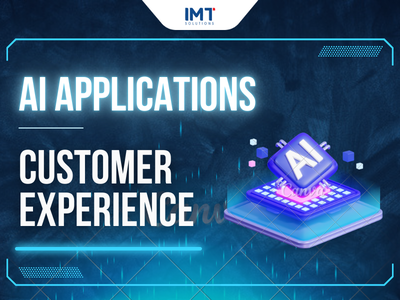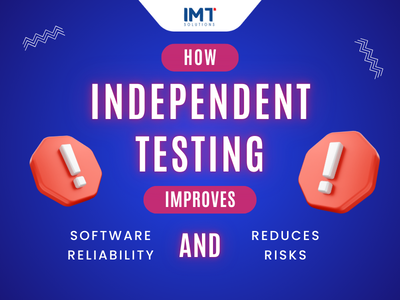The Impact of Fintech
Cloud on Financial
Services Evolution
Leveraging Fintech Cloud for Strategic Advantages
In today’s dynamic fintech landscape, the integration of cloud technology stands out as a game-changer, revolutionizing the way financial services are delivered, accessed, and experienced. According to recent industry reports, the global fintech market is projected to reach a staggering valuation of over $300 billion by 2026. This growth is driven by increasing digitization, changing consumer preferences, and the relentless pursuit of innovation. In parallel, the adoption of cloud solutions within the fintech sector has witnessed an unprecedented surge, with a significant majority of financial institutions embracing cloud-based platforms to enhance agility, scalability, and operational efficiency.

Amidst this backdrop of rapid growth and transformation, this article explores the significant impact of applying cloud technology within the fintech industry. By leveraging insights from industry research and real-world case studies, we aim to provide a nuanced understanding of how cloud technology is reshaping the fintech landscape. From facilitating seamless collaboration and data-driven decision-making to enabling rapid product development and market expansion, the strategic adoption of cloud solutions has emerged as a cornerstone of success for fintech companies worldwide.
As fintech continues to evolve and disrupt traditional financial services, the strategic integration of cloud technology will undoubtedly play a pivotal role in shaping the future of finance, driving innovation, and delivering unparalleled value to businesses and consumers alike.

Exploring Fintech Cloud: Advancing Financial Services with Cloud Technology
In the dynamic realm of the fintech industry, ‘fintech cloud’ refers to the strategic use of cloud computing technology. It enhances the delivery and accessibility of financial services. This term encompasses a diverse array of cloud-based solutions. These solutions meet the specific needs of financial institutions across sectors like banking, payments, insurance, and wealth management. Fintech cloud computing allows companies to access and store data, applications, and services through remote servers on the internet. This eliminates the need for on-premises infrastructure.
Unlike a singular tool or service, it represents a comprehensive approach. This approach leverages remote servers on the internet to store, manage, and process financial data and applications. By using the cloud, fintech firms can streamline their operations and offer scalable solutions. They can also ensure data security and comply with regulations. This strategic use of cloud technology empowers fintech companies to transcend traditional constraints. It fosters operational agility and catalyzes innovation within the digital financial ecosystem. As a result, it drives growth and delivers enhanced value to businesses and consumers alike.
The Ascendancy of Fintech Cloud In the Modern World
The fintech cloud market is rapidly expanding. This growth is driven by the increasing demand for agility, cost-efficiency, and scalability within the financial sector. The rise in cloud adoption witnessed in recent years supports this growth. Technological advancements, enhanced connectivity, and evolving regulatory frameworks fuel this adoption. Financial institutions are turning to the cloud to drive innovation, improve agility, and streamline operations. In this competitive landscape, both established technology companies and emerging fintech startups are vying for market share.

According to a report, the cloud computing banking market was valued at $67.9 billion in 2022. It is projected to reach $301 billion by 2032, with a compound annual growth rate (CAGR) of 16.3% from 2023 to 2032. As cloud adoption in fintech continues to expand, companies are prioritizing security, compliance, and collaboration. This helps them leverage the opportunities arising from the convergence of finance and technology. Fintech cloud services providers are at the forefront of this transformation. They offer innovative solutions tailored to the unique needs of financial institutions.
Exploring the Pros & Cons
Pros:
Cost savings and scalability:
Fintech Cloud offers cost-effective alternatives to traditional IT infrastructure, enabling financial institutions to reduce capital expenditures and optimize operational expenses. Fintech cloud computing offers the flexibility to scale infrastructure and services based on demand, minimizing both capital expenditure and maintenance costs while providing unparalleled scalability, allowing businesses to seamlessly expand their operations and adapt to evolving market demands.
Agility and innovation:
Cloud-based solutions enable fintech firms to quickly develop and deploy innovative products and services. This reduces time to market and gains a competitive edge. Fintech Cloud fosters a culture of innovation. It empowers organizations to experiment with new technologies, develop innovative products, and deliver enhanced customer experiences.
Enhanced security and compliance:
Cloud service providers offer advanced security measures and compliance frameworks. These frameworks address the regulatory requirements of the financial industry. Additionally, fintech cloud computing offers unmatched flexibility. It enables financial institutions to rapidly deploy new services, scale resources on-demand, and respond swiftly to changing market dynamics. Cloud fintech migration strategies play a crucial role in this process. They facilitate the seamless transition of financial operations to the cloud, ensuring minimal disruption and maximizing the benefits of cloud adoption.
Cons:
Security Concerns:
Despite significant advancements in cloud security, persistent worries linger around data privacy, regulatory compliance, and the looming threat of cyber attacks. Financial institutions handling sensitive customer data on cloud platforms face heightened concerns about unauthorized access, potential data breaches, and vulnerabilities. Ensuring compliance with regulatory standards, such as GDPR or PCI DSS, adds another layer of complexity to cloud security measures. Fintech cloud computing poses specific challenges in addressing these security concerns, requiring robust measures to safeguard sensitive financial data.

Dependency on Service Providers:
The reliance on third-party cloud providers introduces a range of dependencies and associated risks. Financial institutions are vulnerable to service disruptions, potential data breaches, and the risk of vendor lock-in. This reliance raises concerns about the control and ownership of data, particularly when cloud services are hosted across different regions or jurisdictions. Mitigating these risks requires careful consideration of service-level agreements and contingency plans in the event of provider failures. Financial institutions must assess the capabilities and reliability of cloud services providers before entrusting them with critical financial data and operations.

Regulatory Compliance:
Maintaining regulatory compliance is paramount in Fintech Cloud adoption. Stringent requirements govern data protection, privacy, and jurisdictional compliance. Financial institutions must navigate a complex regulatory landscape. They must ensure adherence to industry-specific standards and regulations. Failure to comply with these requirements can result in severe penalties. It can also lead to legal repercussions and reputational damage. This highlights the importance of robust compliance frameworks. Cloud fintech migration strategies should include comprehensive compliance assessments. These assessments ensure alignment with regulatory requirements across different geographical regions and jurisdictions.

Integration Challenges:
Integrating cloud-based solutions with existing legacy systems presents significant technical challenges for financial institutions. Legacy systems often feature disparate architectures and data formats, complicating seamless integration with cloud platforms. Overcoming these integration hurdles demands meticulous planning, specialized expertise, and investment in integration frameworks. Moreover, complexities may arise during the migration process, including data transformation, application compatibility, and managing downtime, necessitating careful execution and risk mitigation strategies.

Fintech Cloud in Practice: Real-world Examples
- Open banking and APIs: The adoption of open banking frameworks and APIs allows fintech companies to collaborate with cloud services providers, leveraging their expertise, infrastructure, and security measures to create seamless integrations and offer enhanced financial services to customers.
- Advanced analytics and Al: Cloud fintech computing provides the computational power and storage capabilities required for advanced analytics and Al-driven insights, enabling fintech firms to deliver personalized financial solutions.
- Collaboration and partnerships: Fintech companies can further innovate by collaborating with cloud services providers, leveraging their resources and security measures to foster innovation and expand their market reach.
- Scaling for Business: Cloud services providers offer unparalleled opportunities for business scalability. Financial institutions can leverage cloud-based infrastructure to expand operations, access new markets, and drive sustainable growth. With dynamic resource scaling, performance optimization, and accelerated time-to-market for new products and services, Fintech Cloud facilitates seamless business expansion in the rapidly evolving financial landscape.
Privacy, Security & Recovery:
Privacy, security, and recovery are central pillars of concern within the realm of Fintech. Every cloud services provider faces significant challenges in safeguarding customer data, protecting against cyber threats, and ensuring business continuity in the face of disruptions.
- Privacy: Maintaining the privacy of customer data is paramount for Fintech firms. Any compromise in privacy could lead to severe consequences, including legal ramifications and loss of customer trust. Every cloud services provider must adhere to stringent privacy standards and regulations, implementing robust encryption and access controls to safeguard sensitive information from unauthorized access or disclosure.
- Security: Fintech companies are prime targets for cyber attacks due to the valuable financial data they handle. Security breaches can result in significant financial losses, reputational damage, and regulatory penalties. To mitigate these risks, the cloud services provider must implement comprehensive security measures, including network security, endpoint protection, and threat detection systems. Regular security assessments and audits are essential to identify vulnerabilities and strengthen defenses against evolving cyber threats.
- Recovery: In the event of a security incident or system failure, rapid recovery is crucial to minimize the impact on business operations and customer trust. The Fintech cloud services provider must have robust data backup and recovery strategies in place to ensure timely restoration of services and data integrity. This includes implementing redundant systems, automated backup processes, and disaster recovery plans. Regular testing and simulations help to validate these recovery measures and ensure readiness for real-world scenarios.
IMT – Your Trusted Partner for Fintech Cloud Solutions
The financial landscape is changing rapidly. Legacy IT systems can hold you back from innovation and competition. That’s where IMT Solutions comes in. We’re experts in Fintech Cloud for the financial industry. Our secure and scalable cloud platforms empower you to do what you do best – innovate. Focus on developing new financial products and services, not managing outdated infrastructure. IMT’s team of experts has a proven track record of migrating financial institutions to the cloud with minimal disruption.





